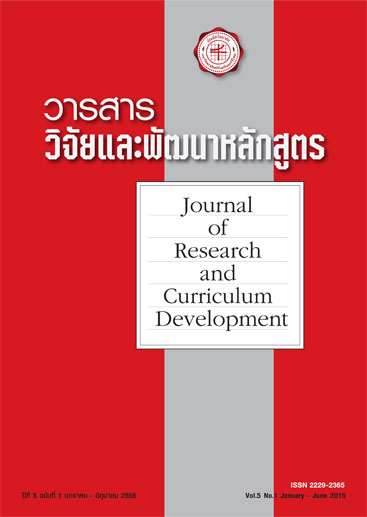การศึกษาแนวทางการเสริมสร้างการคิดสร้างสรรค์อย่างมีวิจารณญาณสำหรับนิสิตที่เรียนด้านการออกแบบ
Keywords:
การคิดสร้างสรรค์อย่างมีวิจารณญาน, นิสิตที่เรียนด้านการออกแบบ, การจัดการเรียน, critical creative thinking, design students, learning managementAbstract
บทคัดย่อไม่สมบูรณ์
The Study of Guidelines to Enhance Critical Creative Thinking for Design Students
The purposes of this research were to study and develop the guidelines to enhance critical creative thinking of design students. The methods in this research were documentary research and in-depth interview. The research instruments included the documentary review form to collect the data about critical creative thinking and the semi-structured interview form. Content analysis was utilized to analyze the data.
The finding revealed that the process of critical creative thinking consist of 6 stages: 1) identify problems, 2) analyze the information, 3) improve the visions for bringing about critical creative thinking, 4) synthetic the improvement of thinking, 5) evaluate the result of critical creative thinking, 6) integrate and increase the competencies of critical creative thinking.
The methods that instructors should consider to improve critical creative thinking of design students are as follows: 1) create self learner center activities, 2) design activities focusing on problem-solving and learning by doing, 3) focus on project-based learning, 4) use brain-based learning: BBL, 5) design activities to improve critical creative thinking using the method for solving the future problems of Torrance, 6) use socratic method of teaching, concepts mapping, brainstorming approach for building the model to bring about critical creative thinking 7) motivate teamwork, reflective feedback and exchange of knowledge 8) use authentic assessment in evaluation.





